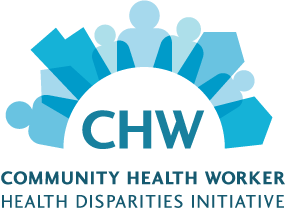West End Medical Center, Inc., Public Housing Primary Care Program Using the With Every Heartbeat Is Life Curriculum
Overview
West End Medical Centers, Inc., (WEMC) located in Atlanta, GA, is a community health center that provides primary care to an urban, predominantly African American, low-income population. WEMC’s Public Housing Primary Care Program provides on-site primary health care to residents. WEMC began implementing the With Every Heartbeat Is Life (WEHL) curriculum in 2006 and in October 2007 expanded its efforts to reach additional housing communities. WEMC trained public housing residents to serve as Community Health Outreach Workers (CHWs) to implement the community education sessions, coordinate screenings and referrals, and follow up with participants after completion.
Program Goals
The overall goal of the program was to determine whether an 11-session tailored educational curriculum, delivered by trained CHOWs, would result in positive cardiovascular changes among public housing residents. The program focused on improving prevention and lifestyle behaviors and on reducing clinical and behavioral cardiovascular disease (CVD) risk factors among public housing residents.
Implementation Strategies
Recruitment
CHOWs recruited participants via resident association meetings, Neighborhood Planning meetings, referrals from existing program participants, community-based organizations, health fairs, and flyers posted throughout the community.
Target Audience
African Americans living in or near public housing communities.
Group Education
CHOWs taught the WEHL curriculum in public housing communities or in the clinic. Classes were scheduled based on the convenience of the group. Upon completion of the sessions, CHOWs followed up with participants through phone and/or face-to-face contact. One reason for follow-up was to help establish a medical home for the participant, if one did not exist. Incentives such as refreshments, grocery gift cards, restaurant gift cards, and novelty gifts (e.g., candles, toiletry kits, hand creams) were given to participants. Follow-up sessions and/or guest speaker presentations were offered on a monthly basis.
Data Collection
Participants completed pre- and post-tests to assess their changes in knowledge, attitudes, and behaviors related to CVD risk factor management, along with baseline screening data. Data was not collected during additional follow-up sessions.
Barriers
- Scheduling conflicts with staff and participants.
- Obtaining approval from community sites (e.g., churches) to hold sessions.
Key Results/Outcomes
- A total of 248 participants completed the program.
- Participants’ average age was 55 years; 52 percent of participants were female.
- Overall heart health knowledge improved by 84.4 percent (from 45 percent to 83 percent).
- Physical activity improved by 46.9 percent (from 66 percent to 97 percent).
- Confidence about preparing heart healthy meals improved by 50 percent (from 66 percent to 99 percent).
- Participants reporting being in the “Action” or “Maintenance” stage of change increased by 47.7 percent (from 65 percent to 96 percent).
Behavioral Frequency Score
On a scale of 1 to 4 (1=never, 4=all the time), participants reported making the following improvements in their heart healthy behaviors to reduce their salt and sodium intake, cholesterol and fat intake, and use strategies to improve their weight management.

| Test Type | Salt and Sodium | Cholesterol and Fat | Weight Management | Overall Behavior |
|---|---|---|---|---|
| Pre-test | 2.6 | 2.4 | 2.7 | 2.6 |
| Post-test | 3.0 | 2.7 | 3.2 | 3.0 |
Difference between pre- and post-test results was significant at P < .01.
The intervention had positive effects on knowledge, attitudes, confidence, and behaviors related to heart health. Community participants’ heart health knowledge increased, the self-reported practice of certain heart healthy behaviors increased (e.g., eating foods with lower salt and fat content), and participants progressed to stages of change more closely aligned with practicing heart healthy behaviors regularly and maintaining them. Participants also reported sharing the information learned with their family, friends, and coworkers.
Last Updated: June 2014







